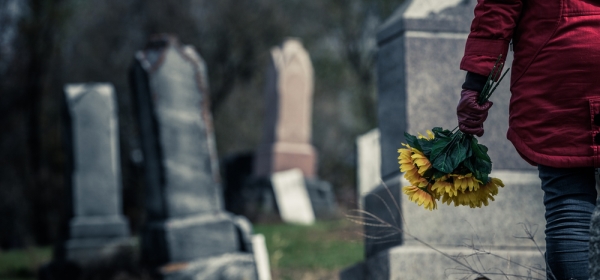Our parents are almost always the people with whom we have our very first relationship. We’re likely to have known them for longer than we’ve known anyone else. They cared for us – in the best way they knew – and shared our milestones, growing pains, failures and joys. They’re a part of us, having had a huge ‘say’ in the person we are today, as well as being a repository of our memories.
Even as a ‘seemingly’ independent adult, we may have relied on them for more than we realised – such as ringing them for counsel or going on social outings together. If you have children, they may feel the same way, after all, they were also their grandparents.
Perhaps your parents also added some further purpose to your life – particularly if the roles had been reversed, where instead of taking care of you, you had to take care of them in their last months or years.
As such, your parents may have formed a big part of your identity in adulthood.
And while deep down you may know that in the normal course of events parents are supposed to die, nothing can prepare you for when it actually happens – for no matter how expected the event, the finality can leave you feeling vulnerable, abandoned and scared. Perhaps even more so if you have lost both of your parents and are now an ‘orphan’.
All of these reasons, and many more, are what it makes losing a parent as an adult utterly painful and complex. Even though they may have had a long, fulfilled life, and you may have had the chance to say goodbye, it doesn’t make it any easier.
However, society, if it deems that it was time for your parent to go, can be pretty blunt and insensitive. Take Mary for example. She was in her mid-50s, and regularly talked to her father, Arthur, who lived a couple of hours away. Arthur was 89, and Mary loved his stamina and zest for life. She looked upon him as a role model, a guide for how to be in life.
The next time Mary visited her father, however, she noticed he looked different – more weathered and fatigued. He told her he had cancer and, at his age, decided not to receive treatment. “I have had a wonderful and meaningful life”, he said, “I’m happy to go now, in peace.”
After three months, he was gone. Naturally, Mary was devastated. Worse, still, her friends and extended family didn’t grasp the depth of her pain. Their well-meaning words came across as indelicate. Many had said something along the lines of, “You’re lucky he had a long life and died so quickly, without much pain.”
But Mary didn’t feel lucky at all. She needed emotional support, which she didn’t receive, as people just thought this is ‘how it is meant to be’. However, the death of a person is almost always more about supporting the people who are left behind, than about the person who has passed away. And an adult who has lost a parent should not be excluded from this respect.
If you have lost a parent, please don’t feel shame in expressing your feelings or taking your time to grieve. Also, seek the support of organisations such as GriefLine and beyondblue, or obtain professional counselling if you find you’re struggling to process the intense grief you may be feeling.
On the other hand, if you know someone who has lost a parent, please do your best to be sensitive and kind. Losing a parent leaves a big gap in someone’s life, regardless of their age.
Read more from The Age and The Guardian.

